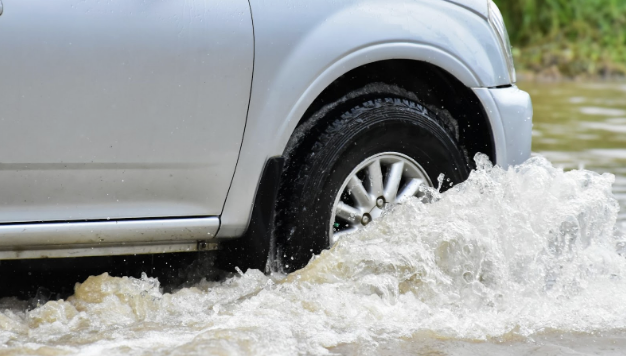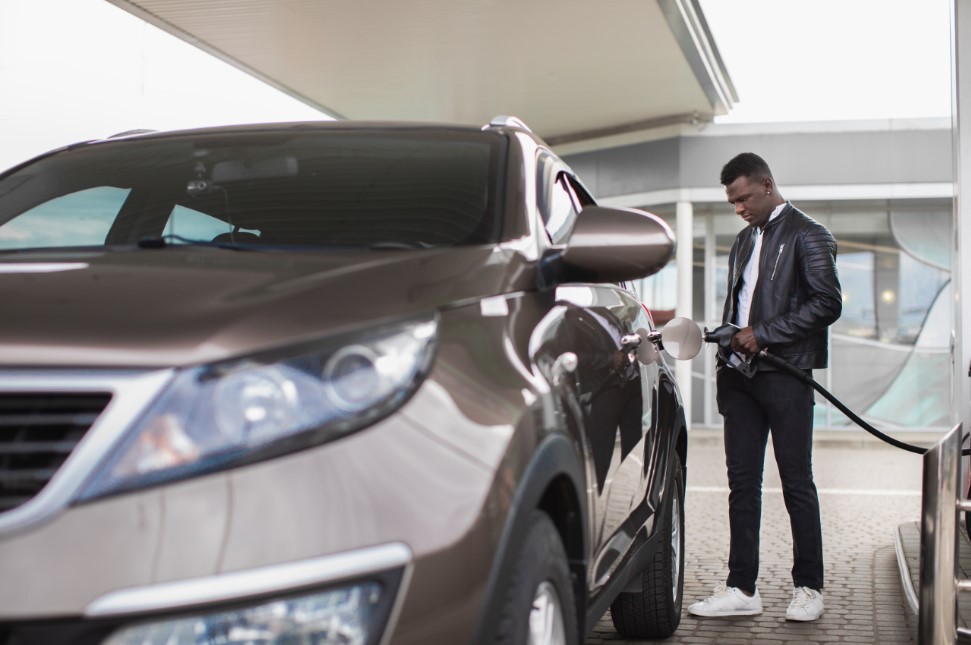Is Your Engine Hydrolocked? Common Causes and Fixes

Car won't start after driving through a puddle? Or maybe you hear strange noises coming from the engine? These could be signs of a hydrolocked engine – a situation no driver wants to be in.
Don’t worry – the team at Christian Brothers Automotive is here to guide you through everything you need to know about hydrolocked engines, from common causes to signs to watch out for and some solutions to get your vehicle back on the road.
What's a Hydrolocked Engine?
A hydrolocked engine is a condition that occurs when a significant amount of liquid enters the engine's combustion chambers, preventing the pistons from completing their compression stroke. This liquid can be water, coolant, or even engine oil, and it causes the engine to seize up and stop running.
Hydrolocked engines most commonly occur when driving through deep water or due to internal coolant or oil leaks, but other causes also exist.
Common Causes of Hydrolocked Engines
While speeding through a waterlogged street might be the primary reason for a hydrolocked engine, it's not the sole cause. Consider these other frequent factors:
A malfunctioning or damaged head gasket leading to coolant entering the combustion chamber
A cracked engine block or cylinder head, letting coolant or water seep into the engine
Internal coolant or oil leaks from damaged seals or gaskets
Submerging the engine’s air intake in water while off-roading or driving through a flooded area
Signs of a Hydrolocked Engine
The most apparent sign of a hydrolocked engine is that it won't start. When you turn the key, instead of hearing the engine roar to life, you'll hear nothing but silence or an ominous clunking noise. Other signs include:
The engine not turning over
Crashing or knocking noises
Abnormal amounts of water coming from the exhaust
Engine stalling after driving through water
If you experience any of these symptoms of a hydrolocked engine, taking immediate action is important.
My Engine Is Hydrolocked – Now What?
So, your engine is hydrolocked. What do you do now? First and foremost, do not try to start the engine again. Attempting to turn on a hydrolocked engine can cause even more damage to internal components like the pistons and connecting rods.
Do the following if you think your engine may be hydrolocked:
Avoid Trying to Turn it Over Again: This is the most crucial step. Attempting to start a hydrolocked engine can cause significant, expensive damage.
Get to Safety: If you're in a dangerous situation (deep water, middle of the road), push the car to a safe location, if possible, or get yourself to safety and call for assistance.
Disconnect the Battery: This helps prevent electrical damage if water has infiltrated more than just the engine.
Check the Air Filter: If the air filter is soaked, it confirms that water entered the intake system.
If you need help locating and fixing the source of the hydrolock, it's best to call a professional mechanic for assistance.
Can a Hydrolocked Engine Be Fixed?
The good news is that, in most cases, a hydrolocked engine can be fixed. The extent of the damage and cost of repairs will depend on how long the engine was hydrolocked and the type of liquid that caused it. In some cases, simply draining the engine and replacing some damaged components may be enough to get it running again.
Aside from fixing the engine itself, other car services may be necessary if your car has been sitting in water for a prolonged amount of time – these include:
Replacing Fluids: All fluids, including transmission fluid, differential fluid, and brake fluid, may need replacing to prevent contamination.
Electrical System Inspection: Water can wreak havoc on electrical components. Thorough inspection for shorts, corrosion, and faulty sensors is essential.
Interior Cleaning and Mold Prevention: Deep cleaning and sanitation of the interior is necessary to remove mud and debris and prevent mold growth.
Wheel Bearing Check: Wheel bearings submerged in water could be compromised and need inspection and replacement.
Rust Prevention: Undercarriage components, especially if exposed to saltwater, might need rustproofing treatments.
In any case, it's best to create a plan of action with your trusted mechanic to ensure that all necessary repairs and services are completed.
Trust Christian Brothers Automotive for Local Engine Services
If you find yourself dealing with a hydrolocked engine or in need of any other engine services, trust the experts at Christian Brothers Automotive. Our certified technicians have the experience and knowledge to diagnose and repair any car problem efficiently and effectively.
We use only high-quality parts and offer a 3-year/36,000-mile Nice Difference Warranty on all our services – along with clean and comfortable waiting areas and complimentary shuttle service. Rest assured that your vehicle is in good hands with us!
Find your nearest Christian Brothers Automotive location today to schedule an engine inspection to keep your vehicle running smoothly!


[1].jpg)
Sunwash-Tech-with-Customer.jpg)

